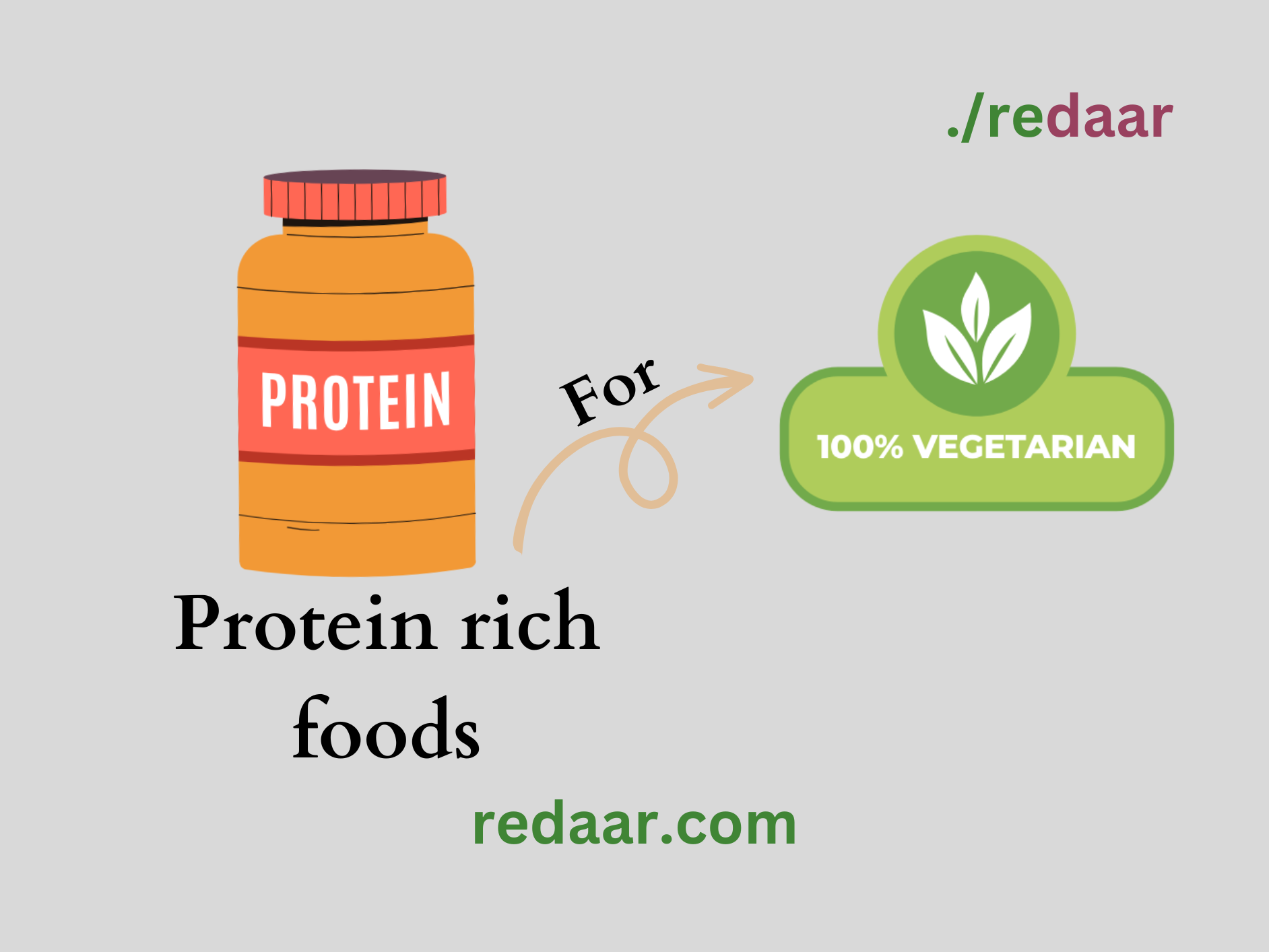In a world filled with food, protein is essential to our general health and well-being. While many people identify protein with animal products, the plant kingdom has a wide variety of vegetarian foods that are high in protein. We set out on a quest today to investigate the best plant-based protein sources that are out there. These vegetarian-friendly foods, which range from basic legumes to historic grains, are not only filling but also rich in vital nutrients.
Let’s Explore one by one
1. Lentils
The powerful legume lentils earn a prominent place on our list. Lentils pack a significant protein punch with about 18 grams of protein per cooked cup. They are a great option for preserving a healthy heart and digestive system because they are also high in iron, folate, and fiber. Lentils are adaptable and may be used in a variety of dishes, from comforting soups to fiery dals.
2. Quinoa
Quinoa, which is frequently referred to be a complete protein, is extremely well-liked among health nuts. This ancient grain packs a powerful nutritional punch with about 8 grams of protein per cooked cup. Quinoa is high in protein, as well as fiber, iron, magnesium, and a number of necessary amino acids. Its adaptability is seen in salads, stir-fries, or even when used in place of rice in conventional recipes.
3. Chickpeas
Chickpeas, also known as garbanzo beans, are a rich source of plant-based protein. Chickpeas provide the body with nutrition and aid in satiety because each cooked cup contains about 15 grams of protein. These beans may be made into hummus, roasted for a crunchy snack, or added to curries and stews for a filling supper. They are also high in fiber, folate, and manganese.
4. Hemp Seeds
Even though hemp seeds are tiny, they are incredibly nutritious. These little protein powerhouses include about 10 grams of protein per ounce and are also a great source of omega-3 fatty acids and numerous important minerals. For a delicious crunch and protein boost, hemp seeds can be sprinkled over salads, added to smoothies, or used as an ingredient in baked products.
Also Read: Top 7 Healthy Lifestyles to Follow
5. Chia Seeds
Chia seeds dubbed a “superfood,” are high in protein and have a number of other health advantages. Chia seeds are a fantastic complement to a vegetarian diet because they have about 5 grams of protein per ounce. Additionally, they are rich in antioxidants, fiber, and omega-3 fatty acids. Chia seeds have a gel-like consistency when mixed with liquids, which makes them a great foundation for puddings, smoothies, and as an egg substitute in baking.
6. Tempeh
Indonesian-made tempeh is a fermented soybean food that is packed with nutrients. For those looking for a plant-based substitute, tempeh offers a sizeable quantity of protein at around 30 grams per cup. Probiotics are also present, and they help to maintain intestinal health. Tempeh can be marinated, cooked on the grill or in a stir-fry to make a delicious, protein-rich dish.
7. Greek Yogurt
Greek yogurt is a deliciously creamy treat packed with protein. About 20 grams of protein are found in one cup, which makes it a great choice for breakfast or a snack. Greek yogurt maintains the health of bones and promotes digestion due to its microbial content and calcium-rich profile. Due to its adaptability, it may be used in a variety of recipes, from sauces to sweets.
8. Seitan
Seitan, a dense source of plant-based protein with over 25 grams per 3-ounce serving, is made from wheat gluten. Seitan is an excellent substitute for meat in recipes like stir-fries, stews, and kebabs because of its meaty texture. This adaptable protein substitute offers a great culinary experience by absorbing flavors with ease.
9. Tofu
The versatile soy-based food tofu, also known as bean curd, is frequently used in vegetarian and vegan cuisines. It is manufactured by squeezing the curdled soy milk into blocks once it has been curdled. With about 10 grams of protein per 100 grams, tofu is a fantastic source of protein.
Tofu also has added advantages. It is free of cholesterol, low in saturated fat, and rich in calcium, iron, and magnesium, three crucial minerals. Additionally, it contains a lot of isoflavones, which are plant components linked to a number of health advantages, including a lower chance of developing a few chronic diseases.
Choosing a vegetarian diet does not require reducing your protein consumption. Vegetarians’ needs are well-served by the excellent selection of foods high in protein found in the plant kingdom. These plant-based meals, which range from the adaptable lentils and the miracle grain quinoa to the robust chickpeas and the small powerhouses hemp and chia seeds, not only give protein but also a variety of crucial nutrients.
Vegetarians can have a varied and fulfilling diet that keeps them healthy, nourished, and thriving with a little imagination and inquiry. We are more informative articles on Redaar, hence keep loving and following us through our journey.

